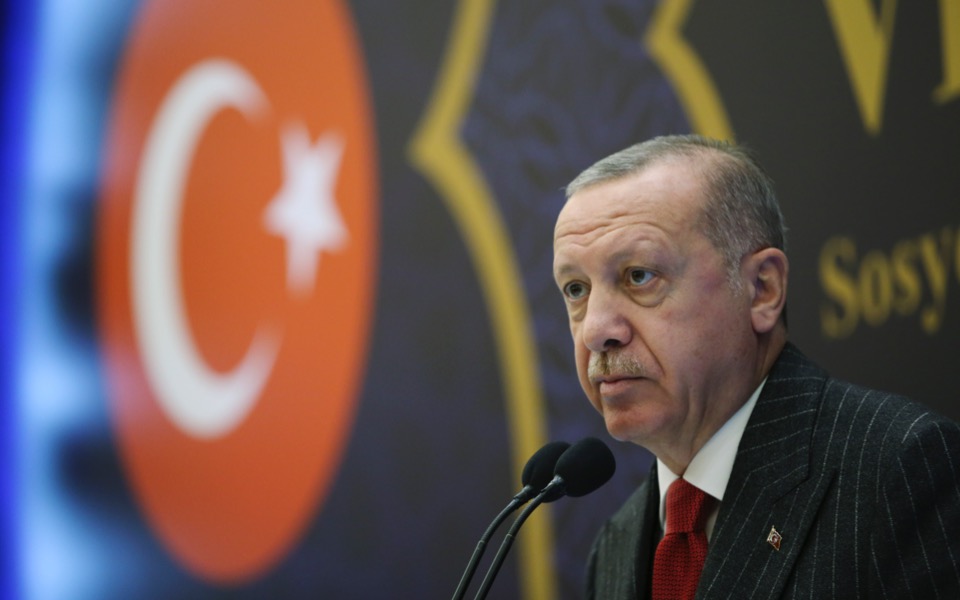Greek foreign policy and the Turkey-Libya agreement

Turkey’s revisionist policy after 1973 is being implemented through a recurring four-phase strategy: questioning the sovereignty and the rights of the Hellenic Republic in terms of sea zones and islands; turning the questioned territories into so-called gray areas; preventing Greece from exercising its legal rights in these areas; and trying to present these areas as part of Turkey.
This Turkish campaign is an act of international piracy, a blatant violation of international law, and a challenge that mandates a strong response from Greece. In order to deal with this strategy, as manifested through the recent maritime boundaries agreement signed between Turkey and Libya, Greece must immediately do the following:
First, it must close off its bays and adopt straight baseline delimitations to replace the natural shoreline. In this way, the line upon which this delimitation is calculated is moved, as stipulated by international law. Greece will in other words expand its territorial sovereignty. This is something that Albania did 30 years ago. The question is: Why have Greek governments been so shortsighted and not done this decades ago? And why did the previous government backpedal on what had already been agreed upon? It is perhaps because foreign policy in Greece is dominated by fear, by lack of vision and by short-term tactics. Contrary to this mind-set, we need an energetic, responsible foreign policy that is animated by a sense of strategy, moderation, knowledge and determination.
Second, Greece must immediately open its embassy in Tripoli and, at the same time, continue to maintain good relations with the Libyan Parliament. I personally visited Libya. The building that houses the embassy is in very good condition. We hired auxiliary staff to take care of it. During a service council meeting, it was decided which diplomat would take over the post of ambassador. After conducting research, we reached decisions regarding the personnel and the security measures that would be needed, and also held talks with Italy in order to coordinate our actions. All these actions were revoked. Certain people consider that the national interests and the security of our country are not top priority. It’s time they got their act together.
Third, the government ought to promote the introduction of European Union financial and diplomatic sanctions against Libya until the annulment of the agreement. This could be based on the fact that, two years ago, Greece managed to secure the commitment of the EU’s council of foreign ministers that respect for the International Law of the Sea will be a criterion for third parties.
Fourth, the current government must immediately stop treating Cyprus along the lines of showing solidarity to “third parties.” Cyprus is a part of Hellenism (some people should read up on their history as well as poetry by the likes of Seferis and Elytis). We have a special responsibility to support the island’s security, particularly after the criminal mistakes committed by the military junta in 1974. Furthermore, while we rightly carry out government-to-government meetings with third parties such as Turkey, Israel and Egypt, we must finally organize a similar meeting with Cyprus, as I have long been recommending.
Fifth, it would be very useful if government officials got serious and stopped giggling when referring to Turkey’s gunboat diplomacy within the contours of Cyprus’ exclusive economic zone (EEZ), even within its territorial waters. If they haven’t gleaned anything from Turkey’s behavior in Syria, then they probably haven’t understood the basics of Greece’s foreign-policy making either. Furthermore, they ought to speak less and study more. The Greek foreign minister, for example, cannot say in public that he is not aware if seismic surveys by third parties on Greece’s continental shelf constitute a direct violation of our sovereignty. The Turkish side has noted this and is “utilizing” his lack of awareness.
Sixth, we must support our relations with Egypt and the efforts to delineate and declare an EEZ with Cairo. Foreign policy is not a series of leisure trips but a tough terrain upon which the interests of the country and Hellenism are defended. This is not a time for officials to travel to Cairo without maps and charts.
Seventh, Greece must concentrate on its dysfunctional relations with Turkey. In order to do this, we must take care of any problems we have with our northern neighbors in a creative and productive manner. New Democracy must understand how necessary the Prespes accord was from a geostrategic perspective and make use of the current opportunity to promote so-called earthquake diplomacy with Albania.
Eighth, in 2019 we lost key connections with institutions and officials in the United States. There is an urgent need to fill the gap. In addition, we must carry out more extensive talks with Russia and China over the stance of Turkey and underscore the latter’s behavior in a more pressing manner inside the EU.
Finally, ninth, all the above must take place in combination with measures that cannot be announced in public in order to achieve greater security and calm in Greek-Turkish relations. Our relations with our aggressive, nervous and revisionist neighbor must once again involve levers of pressure.
The prospect of Turkey’s EU membership is no more and along with it the tools that emanated from such a prospect/relationship 20 years ago have also disappeared. However, we can make use of the EU’s economic ties with Turkey, particularly the customs union, which concerns a trade volume of 60 billion euros.
At the same time, we need a special strategy for developing ties with Ankara so as to build cooperation in certain areas. However, any cooperation presupposes a display of determination and strength, and reliance on alliances.
Overall, Greece must undertake initiatives that will not be held ransom to party politicking, as some tried to do with the four-party defense agreements which they found ready-made (from me) and about which, unlike them, I never spoke in public. Greece must deal with its problems with Turkey in a bold and realistic manner, with an eye fixed on regional and international developments, on security and stability, without resorting to chest-thumping or appeasement, and steering clear of politically expedient objectives.
Nikos Kotzias was Greece’s foreign minister from 2015 to 2018.





